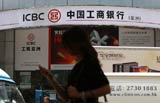China pledges faster and cheaper Internet
(Xinhua) Updated: 2015-05-16 13:56BEIJING - China's Ministry of Industry and Information Technology (MIIT) on Friday pledged to elevate the country's broadband speed and coverage, while lowering Internet fees.
By the end of this year, the average broadband speed for users in major municipalities and provincial capitals will be increased to 20 megabytes per second (Mbps) from the current 9 Mbps, said Shang Bing, the MIIT's deputy minister. Other urban areas will be improved to 10 Mbps from the current 7 Mbps.
According to Shang, average charges for mobile phone Internet and fixed broadband should be sharply decreased by at least 30 percent from the previous year by the end of this year.
Infrastructure is key to improving speed.
More than 1.3 million 4G base stations will be built in urban and most of the rural areas by the year end.
The MIIT said by the end of 2017, telecom enterprises will have invested 1.1 trillion yuan ($179.74 billion) more to upgrade China's Internet infrastructure. Optical broadband speeds of 100 Mbps will be accessible to almost all urban families, and average broadband speed will reach 30 Mbps in major cities.
In order to tackle high fees, fair competition will be encouraged.
The MIIT demanded a more open market and stricter monitoring of the telecom market in an effort to offer consumers more services and cheaper prices. Pilot broadband access will be expanded to more than 30 cities and 100 enterprises by the year end.
China's top three telecom operators, China Telecom, China Mobile and China Unicom all responded to the MIIT, announcing specific measures for raising speed and lowering prices.
Average cable broadband speeds will be promoted to 20 Mbps from the current 11 Mbps, and prices will be reduced by around 35 percent by the end of this year, China Telecom announced.
The company promised to launch preferential 4G data packages, lower its international roaming data fees, and allow users to continue to use the leftover mobile phone credit in the following months, which was unimaginable in the past.
China Mobile promised to lower its data fees by around 35 percent by the year end, launch favorable data packages and innovative services such as allowing data traffic to be shared, exchanged and used without being cleared in the next month.
China Unicom also announced a string of favorable service packages. Meanwhile, the company will reduce the unit data price by more than 20 percent for all its mobile users, and will strive to transform its whole network into optical broadband by the end of 2016.
"In China, where currently about 650 million people are mobile Internet users, mobile Internet has become a major infrastructure, " said Chen Jin, general manager of Zhongan Insurance. "Internet-related innovation and technological advancement are highly based on improved experience of mobile Internet users."
Since the "Broadband China" strategy was floated in August 2013 by the State Council to boost information consumption and expand broadband coverage across the country, the development of China's broadband network has seen significant improvements.
By the end of March, a total of 290 million families are enjoying easy access to optical broadband network, and more than 200 million users are enjoying fixed broadband network. About 2.27 million 3G and 4G base stations have been built to offer services to 640 million mobile broadband users.
A high-speed network with lower charges will help promote the "Internet Plus" scheme, under which the Internet and traditional industries are integrated through online platforms and technology, and foster new growth impetus, said Ning Jiajun, director of the Experts Committee of the State Information Center.
- No QE needed for China despite downward pressure on economy: US expert
- 'Chuangke' dreams high to improve health care experience
- Head office of BRICS bank takes shape in Shanghai
- Tourism companies see sunny days ahead
- Investment flows into EU surge by 487%
- Carriers scramble to answer Li's call
- PBOC allays fears over bond swap plan
- CSRC expands scope of money market funds

















